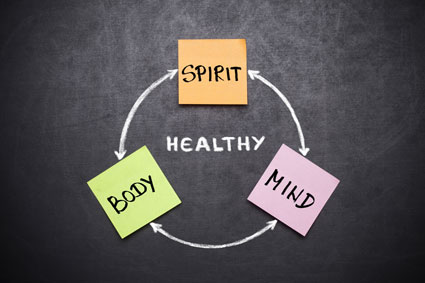For those struggling with finding a passion in life, it often seems as if everyone else has found their passion easily. We all tend to compare ourselves with others, against everyone from our own families or inner circle, our "super-successful" neighbor, or a Hollywood star, and it's easy to become frustrated or despondent when comparing yourself to the movie moguls and rock stars of the world!
There are a few simple truths regarding those who seemed to have found their calling in life, or passion easily, either falling into it by chance, or knowing their destiny at an early age. While both of these scenarios are sometimes true, the majority of people who've found their passion questioned and doubted themselves sometimes, just like everyone else. In fact, many still do, despite having found their path.
Like purpose, passion is not a static thing, nor should it be. Passions change with time, circumstance, maturity level, and life situation. (Perhaps you're noticing a pattern here?) Like the television commercial, which shows a young man at a party insisting he'll never marry and follows him through a period of time as he marries, has children, gets a mini-van, and moves to the suburbs (all things he said he'd "never" do), life and time have a way of changing one's priorities. Things that seem unimportant at one stage of life can become a major life focus later on.
Like many of the terms we've discussed this far, the word "passion" has more than one definition. The basic definition of passion is, "a strong feeling of enthusiasm or excitement for something, or about doing something" (Merriam-Webster Online Dictionary). Passion can be a positive thing or a negative thing, depending on how it's experienced.
If passion becomes obsessive, it can be extremely destructive to both self and others. To obsess over something or someone is to think or talk about the object of focus to excess, sometimes to the exclusion of all else (including food and sleep). Obsession is illogical; obsessed individuals are sometimes unable to realistically assess their behavior. Someone overly obsessed with another person may stalk the object of their obsession under the misguided thinking they're showing love and devotion. While having an all-consuming passion, such as a love for painting or playing an instrument, can be a very good thing, it is important to remember life needs balance, so focusing on one's passion to the exclusion of all else is potentially mentally and physically unhealthy (think: Mozart on his death bed in the film, Amadeus").
What's Your Passion?
Right about now, you may be thinking, "All of this is great in theory, but I don't have time to find my passion! I have work/school/housework/bills/responsibilities to worry about. I'm not some starving artist! I don't have time or energy for passion – I barely have time or energy for regular life!"
Welcome to the club! The majority of folks who live regular, day-to-day lives feel the same way. Unfortunately, we are bombarded with media images everywhere showing us "beautiful people" who seem to have it all – movie stars, people who travel for a living, rock stars, billionaires, reality-TV people who've somehow found fame. Despite the scandals, we "ordinary" folk look at these people as though they somehow have more happiness than we do by virtue of their visibility. Somehow, they have some "inner passion" that makes them better, happier, or more secure in their life than we are. Logically, we may know this isn't true, but our "inner critic" overrides our logic and insists we're missing something that others somehow innately possess.
Most of us also think of passion as something grandiose. Like purpose, passion needn't be huge to be valuable or fulfilling. Your passion can be simple, such as being passionate about your home environment and undertaking improvements to make it your "dream home." It can be a hobby, such as drawing or playing music. You can even have more than one passion at a time.
One way to identify your passion(s), as well as create focus in your life, is to construct a vision board.
The Vision Board
One of the best ways to focus on what's important to you is to create a visual reminder. This technique is called a Vision Board, sometimes called a Dream Board or Motivation Board. While we'll be describing the exercise in terms of making an actual board, using poster board and other tangible media, you can make a virtual Vision Board as well. A vision board can be any size; even an 8 ½" X 11" sheet of blank, unlined paper will do (lines on the paper tend to put people in a more logical state of mind, rather than creative). Use whatever media you find most inspiring and are the most comfortable with; the important thing is, the board will be something you look at every day for inspiration, so make it something you really like, and have fun creating.
Passions can remain, but change in focus, as well. For example, say a young girl has a passion for competing in beauty pageants. This passion continues through high school and college, at which time, the young lady determines she's fulfilled her personal dreams of beauty pageantry and is ready to move on. Still passionate about competition, she transitions into being a beauty pageant consultant for young ladies wishing to break into competition. Her passion is the same, but the focus has shifted.
Passions can also change completely, once the initial passion has been fulfilled. Let's imagine the young lady mentioned above has fulfilled her personal dreams of competition and feels the pageant world is no longer for her. Instead, she takes up a subject in college that interests her and applies her passion to her new interest. Her previous passion fulfilled, she now (healthily) moves on to other things.
As mentioned earlier in this lesson, it is possible to have more than one passion at a time. Multiple passions are not uncommon. A father may be passionate about his children's activities, attending every one and showing support, and also be passionate about a local cause he volunteers with, or a student may be passionate about school as well as about a sport she plays.
So how does one even identify a personal passion?
As with other exercises in this course, starting with basics is the best way to identify your passions. Avoid looking for "The" life's passion, especially right away. You might be surprised to learn most people's passions involve activities that are a part of their everyday lives, not an all-encompassing activity to the exclusion of all else.
Begin by thinking of what you most enjoy doing, and what most excites you. Do you want to learn to play an instrument? Have you been dreaming of creating a crafting room of your own for years? Do you feel drawn to a cause or charity? Have you always wanted to travel to an exotic place and explore? Would you like to see your garage cleaned and organized once and for all, so you can work on your classic car? (Trick question – the passion is working on your classic car, not cleaning the garage, but a clean garage is part of the pathway to your passion. This does, however, give us a clue as to possible contents of a Vision Board.)
The actual imagery for the board should be things that inspire you and remind you of what you're striving for. You can use words, pictures, computer images, stickers, drawings, or anything else that will remind you of what you seek. For example, a woman who wanted to improve her physical condition so she could begin hiking in the woods and camping for longer stretches of time used images of woods and trees, as well as a photo of herself in better condition, and a cartoon image of a scale. All these things reminded her of her passion for spending time in nature, so it was much easier for her to strive for that goal. More exercise, a better diet, and a trip to the doctor, which turned up a previously undiagnosed thyroid problem allowed her to finally indulge in her passion to spend more time doing the hiking and camping she loved.
If a vision board sounds a bit like goal-setting, it is in a sense. In order to live with passion, certain goals must be met along the way. It's doubtful a master pianist woke up one morning and was suddenly a virtuoso! His passion for the instrument and the music drove him to practice. Sometimes, despite his love for the piano, he probably hated practicing, and may still dislike doing it once in a while. But his overall passion for the instrument drives him to continue.
Creating your vision board
Now that we've discussed what a vision board is, let's go over the steps in creating one.
First, this is not a project that needs to be rushed. It may take some time to identify passions that truly inspire you, find the proper imagery, and create the board. Enjoy the process as you create. (If you don't, you won't use the board when it's finished. Trust us on this.) The board need not be a "static" thing either – you can add to or subtract from it as your focus and/or passion changes.
After identifying your passions, begin with a blank surface. For our example, we'll use a poster board. Choose a color you like, or just use white. If you've been unable to identify a passion, focus on anything you'd like to manifest in your life. Let's assume you've identified your passions as working on your classic car, surfing, and lobbying for a speed bump on your street to slow down traffic for the safety of neighborhood children and pets.
The first object on your board will likely be a photo of your classic car. If there are specific items you want for the car, such as chrome-plated parts, new upholstery, or a larger engine, put representations of these items on the board. If a messy garage is standing in the way of your passion, you might put a drawing or picture of a clean, "shop-ready" garage on the board to inspire you.
For your surfing passion, you can use photos of yourself from previous surfing experiences or a photo of someone riding a huge wave with your face substituted for theirs (remember, this is a vision or dream board – there are no limits or rules!). Pictures of places you'd like to surf or enjoy returning to can be included, as well.
Regarding the speed bump for your neighborhood, a photo of a speed bump, your street, pets, or children playing might be useful. You can write words like, "Safety," "Slow down," "Our neighborhood is safe," or any other word or phrase that reminds you of your passion for making the neighborhood safe.
Again, anything that inspires you and reminds you of your passion(s) can be used. Remember to have fun with the process. It takes as long as it takes, and there is no competition. This is for you.
When your board is ready, place it where you will see it each day, and make a point to stop for at least a few minutes daily in front of the board to look at it, feel your passion, and be inspired.
The Inspirational Tool Kit
An inspirational tool kit can consist of many items, and is similar to a vision board in its individual nature and use of external cues. As far as we know, there is no actual tool kit you can buy called an "inspirational tool kit," but most agree an inspirational toolkit primarily consists of motivational sayings and inspiring passages or quotes.
There are several good motivational and inspirational books available, such as the "Chicken Soup" series. Books and audio books by motivational speakers, such as the late Jim Rohn, Tony Robbins, or Les Brown are excellent sources, as well. Additionally, religious or spiritual avenues can provide a great deal of inspiration through scripture study, meeting attendance, and prayer.
Post-It notes are quite useful for placing inspirational messages where you'll see them frequently, and they can be changed or replaced easily.
Here are some examples of inspirational messages:
I am worthy of happiness.
I can't change the past, but I can learn from it.
I am safe.
Today is a good day.
My childhood might have sucked, but it's over.
I am a child of God.
"The few who do are the envy of the many who watch." (Jim Rohn)
"In every day in every way, I am getting better and better." (French Psychologist Émile Coué, the Father of Applied Conditioning, a psychological theory which uses "autosuggestion" to encourage positive change.)
"The past does not equal the future." (Tony Robbins)
You can also mark passages in books you find inspiring, or flag your favorite scriptures. Refrigerator magnets are another great source of inspiration, and can be fun and colorful. A few examples:
Leap, and the net will appear.
Believe in magic.
Life is beautiful.
Keep Calm and Carry On.
Keep Calm and Play Dead. (Yes, humor can be inspiring too!)
The most important thing about your inspirational tool kit is it speaks to you, motivates you, and makes you smile. If ever you find a motivational tool no longer provides you with inspiration or positive feelings, remove it from your repertoire immediately.































